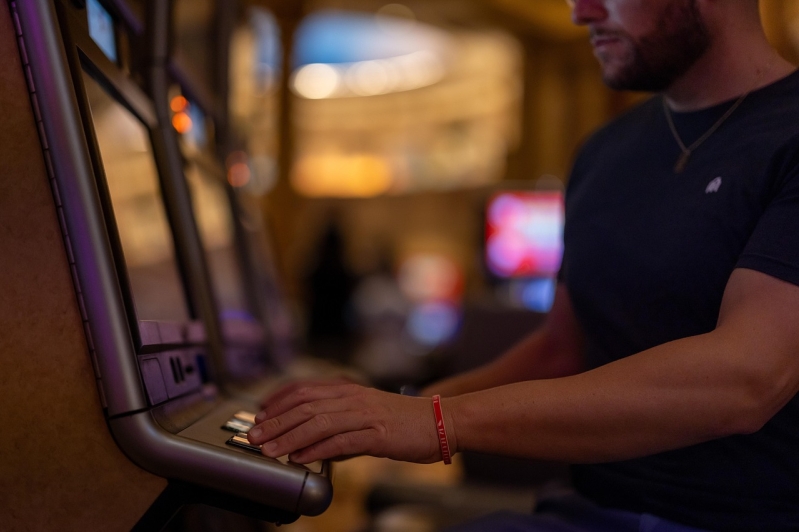
Australia has the highest gambling losses per person in the world, according to the Australian Christian Lobby (ACL), which is urging the government to confront what it calls a national addiction crisis fueled by powerful industry interests.
ACL Chief Executive Officer Michelle Pearse said Australians lose more money to gambling each year than any other country, an estimated A$32 billion (US$21.1 billion) in 2024 alone. The real figure, she warned, is likely higher when illegal online betting and underground gambling dens are included. Behind those losses, Pearse said, are families torn apart, suicides, domestic violence, and lives “unravelled by an industry that thrives on addiction.”
Despite years of parliamentary inquiries and public outcry, Pearse said meaningful reform remains stalled because “gambling is big business, and too many powerful players profit from keeping Australians hooked.” She described the scale of harm as “staggering,” pointing to poker machines — found not just in casinos but in pubs and clubs across the country — as the “biggest culprit” in what she called a system designed to exploit desperation, especially in poorer communities.
“These machines are deliberately designed to addict, using flashing lights and ‘near win’ sounds to keep players chasing losses,” added Pearse.
“In Australia, they are not confined to casinos but sit in pubs, clubs, and hotels, disproportionately concentrated in poorer suburbs where desperation can be most easily exploited.”
Pearse called the issue a “tax on the poor by stealth.” She wrote that machines can be placed every three seconds with bets of up to A$10, which means gamblers can lose thousands of dollars every single hour. Calls to reduce the maximum bet to A$1 have gone unheeded, she added.
“The numbers are shocking, but behind them are real people,” said Pearse, adding that the system had been designed to exploit people by feeding addiction.
A particular concern is the effect of children being drawn into gambling, according to the rights group leader.
“‘Loot boxes” in video games, sports betting ads, and influencers are all normalising gambling for youngsters, she said.
Pearse is sceptical about industry claims of age verification. The Australia Institute recently found that 600,000 children gambled A$18 million (US$11.8 million) in the past year, while nearly half of 18 to 19-year-olds gambled more than A$200 million (US$131.59 million).
“Early exposure is a proven gateway to problem gambling later in life,” said Pearse.
“This is not an accident. It is grooming, plain and simple. Just as tobacco companies once hooked children on cigarettes, the gambling industry is preparing its next generation of 'loyal customers.'”
Pearse asked rhetorically why so little had been done about the problem, adding there was enough evidence about it.
“The 2023 Murphy Inquiry into online gambling laid out 31 recommendations, including a total ban on advertising, mandatory pre-commitment limits, a national regulator, and stronger protections for children,” Pearse pointed out, adding that more than 70 per cent of Australians support a ban on gambling ads.
“But the government is dragging its feet,” said Pearse. “Initially, a three-year phased ban was considered.
“Now, under pressure from the gambling lobby, media companies, sports leagues, and clubs, the plan has been watered down to a vague ‘reduction’ in advertising."
Reducing adverts rather than banning them will have the same effect as it did with tobacco: it entrenches, rather than ends the harm, said Pearse, quoting Rev. Tim Costello, a prominent Australian Baptist minister and social justice advocate.
“The truth is that vested interests have captured our political system,” said Pearse. “State governments are addicted to gambling revenue.”
She alleged that the Australian Labor Party owned clubs in New South Wales and Australian Capital Territory. Some unions profit from poker machines, according to Pearse, and media companies cash in on ad dollars. Sporting codes depend on sponsorships, she said.
“The result? Politicians can always find a reason to delay,” said Pearse.
“Community organisations that benefit from gambling-funded grants are rolled out to oppose reforms. And all the while, vulnerable Australians continue to be exploited.”
Gambling is not just another consumer choice, it is an industry built on deliberately exploiting addiction, said Pearse. She cited the Grattan Institute, which found that just five per cent of gamblers provide 77 per cent of the industry’s profits.
“In other words, the business model depends on problem gamblers,” she said. “That is why reform is not just a policy debate — it’s a moral test. Do we value human dignity over profit? Do we believe children should grow up free from predatory industries? Do we accept that governments and big business should protect the vulnerable, not exploit them?”
However, Pearse felt optimistic for a resolution despite the challenges about the hold of gambling in Australia. She pointed out that the country had “beaten predatory industries before.”
“We once had one of the highest smoking rates in the world. Today, we have one of the lowest, thanks to plain packaging, advertising bans, and public health campaigns. Gambling reform demands the same courage.”
To address the issue, Pearse proposed a six-point reform plan aimed at reducing gambling harm and curbing industry influence. Her recommendations include banning all gambling advertising, introducing mandatory pre-commitment limits and cashless gaming cards, protecting children, establishing a national regulator, treating gambling as a public health issue, and breaking the stranglehold of vested interests.
She argued that if it is too dangerous to advertise cigarettes, it should be considered too dangerous to advertise gambling. International evidence, she said, shows that mandatory limits and cashless cards work — they not only reduce gambling harm but also prevent organized crime from laundering money through poker machines. Pearse urged authorities to protect children by banning loot boxes in games rated for those under 18, enforcing age verification properly, and stopping practices that “groom kids as gamblers.”
She also called for a single, independent, federally funded gambling regulator, criticizing the current patchwork system in which the Northern Territory licenses most online operators despite having “just six staff.” Gambling, she added, should be treated as a public health issue, similar to alcohol and tobacco, focusing on harm minimization, prevention, and support rather than personal responsibility alone. Finally, she said governments must stop depending on gambling taxes and that political parties, churches, unions, and clubs should divest from poker machine profits if they wish to maintain credibility on reform.





